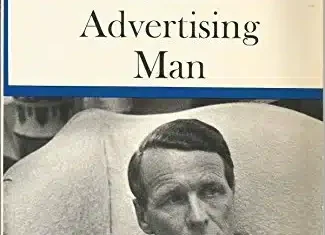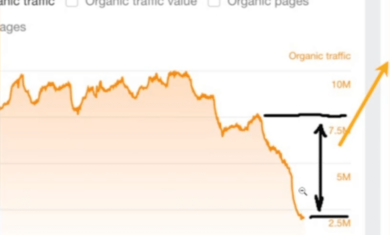Over the past decade, I’ve seen more and more blogs get rid of their comment section and simply say something like “go discuss it on Facebook”. I think that’s a bad move, at least in most cases.
At a high level, it’s because I still think we need to take back our content. Taking back your posts is a great start, but things fall a bit short if you continue to let social media handle the ongoing discussion. While people will ideally be sharing your thoughts on social no matter what, you should encourage the primary conversation to happen on your site.
While this blog doesn’t see a lot of comments (a total of 879 of them over the years), all of them have added to the conversation and a few of them have been quite interesting. Two quick examples were Dennis Crowley chiming in on my post about Foursquare in 2009, and Peter Shankman offering me a correction and more details about his thoughts on the “go ahead, pick my brain” post from a few years back. If I had just offloaded those comments to social media, they’d be impossible to find at this point. Instead, they add great information to both of those posts, even years later.
When it comes to allowing comments on a blog, the conversation is a bit different depending on what kind of blog you run, and I think blogs can be sorted into three rough categories:
- Very popular or business blogs
- Semi-celebrity blogs
- Personal blogs
Very popular blogs
If you run a very popular blog, or one for your business, comments can be a tricky thing. A good example is a company like Anna Griffin, who see dozens of comments on every post, and often hundreds on a post (like this one). This requires someone dedicated to managing those comments and keeping the discussion on track. It’s hugely valuable, but it’s also a lot of work.
If you fall into this category, I can argue either side of this. I think you generally should allow comments and then work to keep the conversation solid, as it’s a tremendous way to build a community (like Anna Griffin has done), but it can be tough to keep things on track.
Semi-celebrity blogs
This is the group that I think struggles the most with comments. When I say “semi-celebrity”, I’m thinking of bloggers that are essentially going it alone, but have a big following. A good example is Chris Lema, a fantastic blogger with a huge following, and someone that doesn’t allow comments. He wrote in 2013 about why he had them, but wrote earlier this year about why he turned them off.
As much as I’m a fan of comments, I’d likely do the same thing if I was in his shoes. If I suddenly had dozens of comments on every post, I’d either need to devote significant time or money to address them. There is value in those comments, for sure, but probably not enough to justify the expense.
In his reasons for turning off comments, though, his third one is this:
The third reason is because the community went other places. As social media grew in dominance, and blogs started taking a smaller role in online conversations and community, I noticed that more discussions were happening on Twitter (at least for me) than on my own blog.
He’s not wrong, but I’m still going to try to fight that trend. Social media is continuing to slowly fragment, so it can be hard to find “the” conversation from a particular post. Chris is mostly on Twitter, the majority of folks are on Facebook, I tend to enjoy LinkedIn conversations, and then there is the whole new crop of networks always coming up. There is one place you could put a discussion where everyone can see it, and that’s at the bottom of the post. Again, though, folks like Chris are in a tough spot in the middle and I can understand why his comments are off.
Personal blog
This post isn’t about folks like Chris, though — it’s about the 99% of us that don’t have that “problem” of too many comments. If you have a blog (and you absolutely should), you should strongly consider having comments enabled. If you use a solid anti-spam tool like Akismet, the upkeep is very minimal. I want to give people a chance to share their responses on here, as their insights on my posts can make the posts better than my initial thoughts ever could.
For example, people had some good thoughts on cord-cutting options, questions about Roam Research, and tools for keeping up with contacts. None were super long discussions, but all help to add more context when people visit those posts in the future.
There’s no perfect answer for everyone, and there are some great reasons why you should disable comments on your site. For most of us, most of the time, leaving comments enabled will help make the web a bit of a better place.
What do you think? Leave a comment and let us know. 🙂





I’ve found comments to be valuable, especially when questions are asked. It provides information for updating posts or creating new ones.
Exactly. There are a lot of sites I visit where I immediately visit the comments section to find out more about the story at hand.
If they are well moderated the comments section are invaluable. There are some sites I visit that I actively engage in the comments because the comments tend to be well moderated and the resulting discussion tis high quality.
There are other sites that don’t moderate the comments well and the discussion quickly devolves to nothing of value. Bots / spam are easier to stop using available tools, but the blog owner has to weed out the trolls who are simply there to turn the comments into an echo chamber shouting match.
I find myself migrating away from those sites over time, even if the post content is great, because there is no good place to have a meaningful discussion about the topic.
This is the challenge, for sure. Like I said in the post, I don’t have this issue given the low number comments I see. That said, this is why it can be tough for folks like Chris Lema and other popular bloggers to keep things on track.
As much as I love comment sections, I just don’t have a good solution for popular sites that can’t afford paid moderators. Perhaps it goes back to Google Earth Hacks, where I had a great crew of volunteers to help moderate the message boards, but that’s harder to do these days and it still took a lot of effort from me to wrangle everyone.